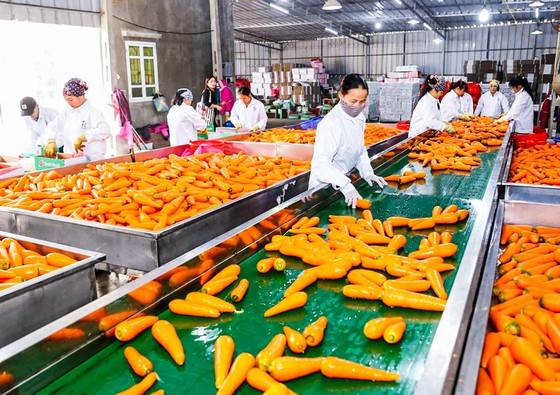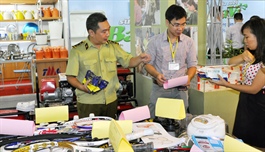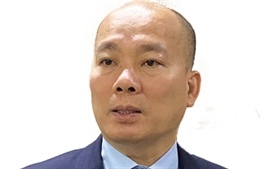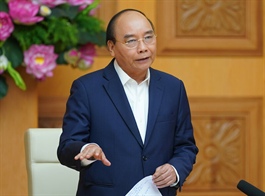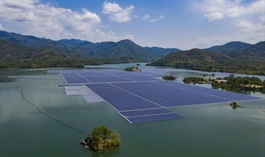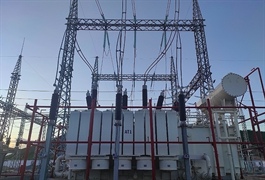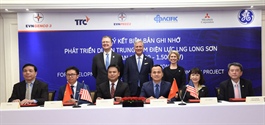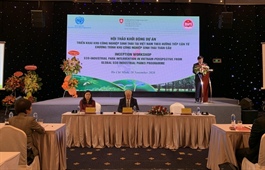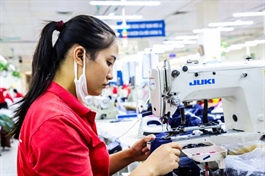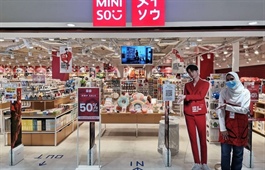RCEP cause of concern over excess imports
RCEP cause of concern over excess imports
The Regional Comprehensive Economic Partnership (RCEP) is proving to be a concern for Vietnam with an increasing risk in maintaining Vietnam’s trade balance with member countries due to excess of imports. Speaking with Saigon Investment, Ms. PHAM CHI LAN, a former member of the Prime Minister’s Economic Advisory Board, expressed some of her serious concerns on this issue.
We expect growth in agricultural exports, but it is difficult for this commodity to compete with China.
|
JOURNALIST: - Ma’am, do you think RCEP will help maintain the trade balance between Vietnam and other member countries?
Ms. PHAM CHI LAN: - I don’t think RCEP will be able to help Vietnam improve the trade balance which has been unstable for several years. Vietnam currently has excess imports from China, South Korea and other ASEAN countries. Additionally, Vietnam is trying to reduce excess exports to the US and EU in an effort to prevent Vietnamese companies from being penalized, which has at times made it difficult for Vietnam.
Even excess exports to the US and EU combined are still less than excess imports from China and other RCEP member countries. The situation of excess imports can hardly be tackled soon enough in the near future. China has been Vietnam’s biggest market for many years, and statistics show that bilateral trade in 2018 and 2019 exceeded USD 100 bn, with Vietnam suffering a huge trade deficit. On the other hand, tariffs reflect that RCEP cannot create a bigger space than before. Most of the RCEP member countries have signed Free Trade Agreements (FTAs) with Vietnam, which means that lower tariffs cannot mean well for Vietnam.
- Ma’am, with regards to investment, how do you think RCEP will affect FDI into Vietnam?
- Most of the RCEP member countries on the list are already major investors in Vietnam. Currently, Vietnam still attracts a lot of FDI, and upto 80% come from countries in the region. Although Japan has good quality investors and higher technology to offer, and South Korea has Samsung in the high-tech area, it does not mean that Vietnam has to have hi-tech products, because little added value is created in Vietnam.
Therefore, we will not be able to improve the quality of investments and may fail to reach the goal of having sufficient quantity of good quality technology if we continue to expect FDI from regional countries, especially China, which is increasing its investments in Vietnam and is currently the biggest investor in Vietnam. It is also a fact that most of the low-quality FDI projects in Vietnam are from regional investors and if we expect RCEP to help us attract better investment, we cannot be sure of the quality of those investments.
- Ma’am, before becoming a RCEP member, Vietnam had joined several new generation FTAs, most recently EVFTA and CPTPP. RCEP is considered to be less strict than other FTAs. What do you have to say on this?
- Several economic experts believe that RCEP is comparatively less demanding, making it more favorable for Vietnamese exports and business activities. Also, RCEP does not impose very strict requirements or procedures, so we cannot describe RCEP as a new generation FTA. If we consider it a new generation FTA with such lax formalities, it could make Vietnamese businesses enjoy more favorable conditions and lack the competiveness to make progress, which could slow down our reforms.
The two previous FTAs, CPTPP and EVFTA, introduced strict procedures, requiring the Vietnamese Government and enterprises to make considerable improvements and substantial institutional reforms to meet their criteria. Though very demanding criteria makes it extremely hard for Vietnamese companies, it still motivates Vietnamese businesses to implement further reforms. As a result, such strict criteria helps in creating good quality products with higher added value. Most importantly, it creates a good opportunity for Vietnam to improve or eradicate bad business practices and maintain discipline.
- Ma’am, some people think such lax rules would cause RCEP to be easily controlled by powerhouses. What is your opinion about this?
- During the Trump Administration, the United States withdrew from most FTAs, even those of its allies. They did not want to join foreign countries, which created many negative global economic relationships. As far as its purpose is concerned, RCEP is basically good in the way that partners seek trade liberalization, rather than protectionism or multilateral cooperation.
Looking at the list of fifteen members of RCEP, it is very likely that China will become more dominant because of its large population and huge robust market. While it is now extremely difficult for China to access the technology in the US and EU, RCEP could be a great chance for China to obtain higher technology. Consequently, this agreement could open the door for China, and pave the way for it to reintroduce new rules to the game. RCEP is predicted to make up 50% of the global GDP in a few years’ time, which means China will become remarkably much stronger. However, whether Vietnam or other countries will be dominated by China in trade and technology is a question that will be answered in the future.
I do believe that China will cause certain commercial influence on RCEP because China has a gigantic market, making it impossible for other countries to ignore this market. However, technology is another story. Technology has a decisive effect on the added value of products, production processes and competitiveness of the market. This is why countries are very cautious about the matter of technology, because technology is closely connected with the safety and security of a nation as well as the competitiveness of its economy.
- Thank you very much.


